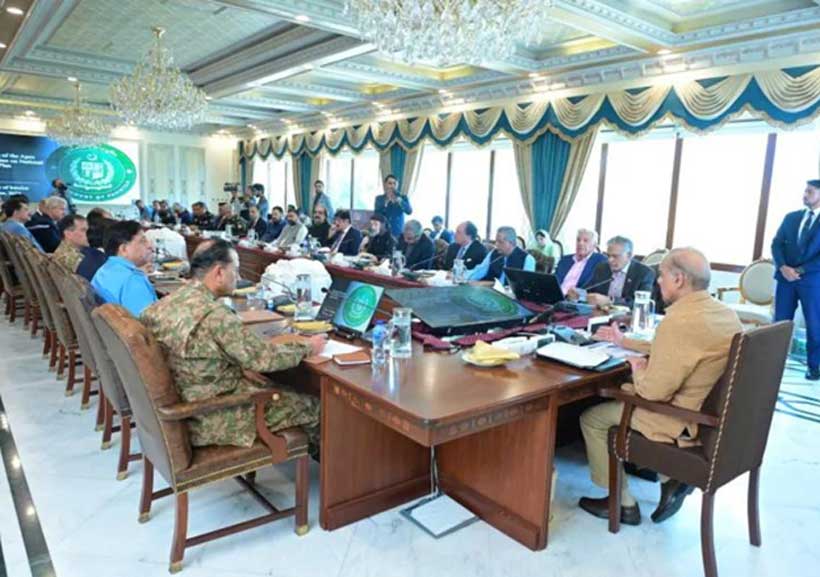The recent resolution by the US House of Representatives can be interpreted as a strategic maneuver to influence Pakistan’s internal dynamics. This act of external interference has raised eyebrows and added another layer of complexity to Pakistan’s already challenging political landscape. Concurrently, some judges have provided significant relief to the Pakistan Tehreek-e-Insaf (PTI), highlighting the intricate interplay between judicial actions and political agendas. At this critical juncture, PTI and the United States appear aligned, with PTI’s anti-CPEC stance and the attacks on Chinese nationals and CPEC projects by TTP and Baloch extremists adding to the tensions.
Given the increasing incidence of terrorism, including footage of the Afghan Taliban cutting the Pakistani border fence and facilitating TTP terrorists’ entry into Pakistan, the urgency for Operation Azm-e-Istehkam cannot be overstated. This operation is essential for safeguarding national security and protecting innocent lives. The government must communicate clearly that this operation aims to eliminate terrorist threats without targeting any particular area or displacing citizens unnecessarily. Every few days, the nation hears reports of military officers and soldiers being martyred in the fight against terrorism. This grim reality underscores the pressing need for decisive action.
The government’s role in this operation extends beyond mere execution. It is crucial to build a national consensus to ensure broad support for Operation Azm-e-Istehkam. Engaging all political parties, including those opposed to the operation, is vital. Convening an All-Parties Conference (APC) can foster a unified stance against terrorism, reminiscent of the unity achieved following the APS massacre. Such inclusivity will reassure the public, especially those in regions most affected by terrorism, that their safety and homes are prioritized. The APC has historically played an important role in creating a sense of unity during national crises, and its convening at this moment is essential to solidify the national resolve against terrorism.
While military action is crucial, it is equally important to address the underlying factors contributing to extremism in Pakistan. The operation must be complemented by societal reforms to eradicate extremist ideologies. This requires a multifaceted approach, including significant educational reforms to instill critical thinking and discernment among the youth. The societal fabric has been marred by extremist ideologies not just on religious grounds but also on political and linguistic bases. These divisive thoughts have turned parts of Pakistani society into fertile breeding grounds for various extremist groups. Only through such comprehensive measures can the roots of extremism be effectively addressed.
Addressing extremism is not merely a military endeavor but a societal one. Pakistan’s education system needs an overhaul to eliminate extremist thinking. By reforming the curriculum to promote critical thinking and understanding, the youth can be equipped with the knowledge to differentiate between right and wrong. Without such reforms, the risk remains that young minds may be manipulated by those who play on their vulnerabilities under the guise of change or revolutionary ideas. Extremist ideologies have long been a bane to Pakistani society, and eradication efforts must be robust and sustained.
Operation Azm-e-Istehkam represents a critical step towards securing Pakistan’s future against the backdrop of increasing terrorism and external pressures. It demands national unity and support for the armed forces and security agencies. As the nation faces this challenge, it is imperative to avoid politicizing the anti-terrorism campaign and instead, collectively strive to eliminate the threats to national security. The success of this operation depends not only on military prowess but also on the nation’s ability to foster unity, reform societal structures, and unequivocally reject extremist ideologies. The opposition to the operation by PTI and Maulana Fazlur Rahman is tantamount to supporting Afghan Taliban and TTP, which only exacerbates the threats facing Pakistan.
The current state of national security is intolerable, and the stakes are high. Pakistan’s survival and prosperity hinge on the elimination of terrorism. This operation is a pivotal moment for the nation, calling for unwavering support and unity. The armed forces and security agencies need the full backing of the nation, and as citizens, we must stand shoulder to shoulder with them to rid our homeland of the menace of terrorism once and for all. With a clear understanding of the gravity of the situation and a collective resolve, Pakistan can overcome the threats posed by terrorism and build a secure and stable future for all its citizens.
